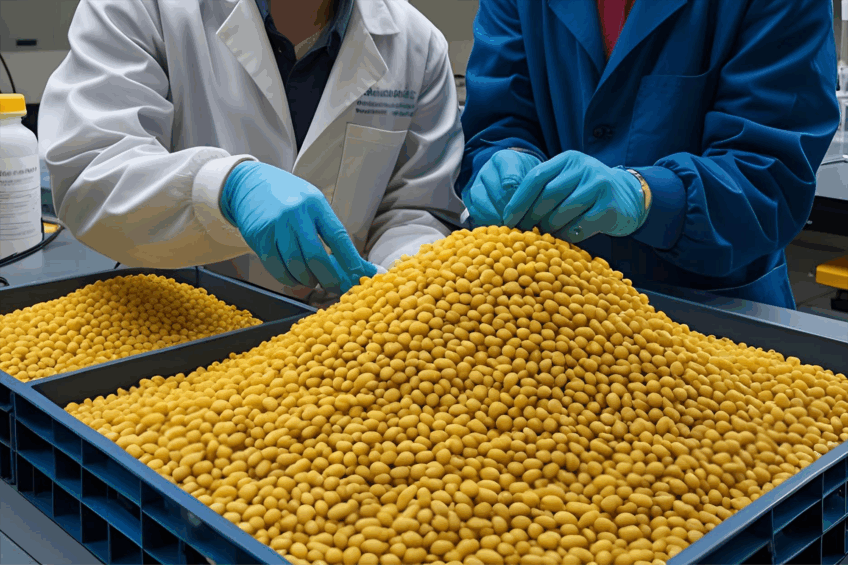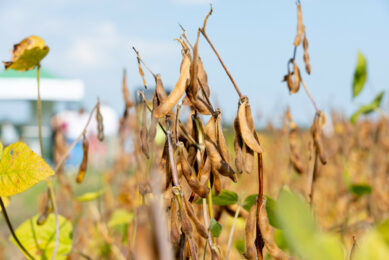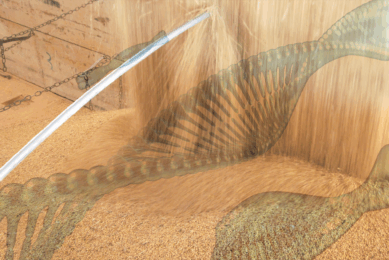UK eyes lupin as sustainable soya alternative for feed

As the UK looks to cut its reliance on imported soya and lower the environmental footprint of animal feed, a new project is exploring whether homegrown lupin could be the sustainable, protein-rich alternative the industry needs.
UK imports 3.5m tonnes of soya
The UK currently imports more than 3.5m tones of soya each year to feed livestock, mostly from Brazil – contributing to deforestation and significant carbon emissions.
Sustainable lupin project launched
The Sustainable Lupin project was launched earlier this year to explore whether homegrown lupin could offer a sustainable alternative.
Lupin is the one species that you can grow that will genuinely replace soya protein.”
— David McNaughton, Managing Director, Soya UK
Partners back 2-year project
Led by the UK Agri-Tech Centre, and delivered in partnership with Soya UK and Phytoform Labs, with support from Newcastle University and Sustainable Direction, the 2-year feasibility study is part of the UK Government’s Sustainable Farm based Protein competition.
Reducing reliance on soy
Dr David George, reader at Newcastle University, said the project was looking at whether it was possible to reduce our reliance or even completely replace the reliance on soya.
Life cycle analysis underway
John Looney, Sustainable Direction managing director, said UK Agri-Tech had asked his company to produce a life cycle analysis to look at the comparing of the replacement of soya with home-grown lupin in relation to a lower carbon footprint.
Field trials and gene editing
Dr Reka Haraszi, Innovation lead (Food and Drink) at the UK Agri-Tech Centre, said the project was looking at conventional methodology, such as field trials, and next generation methodology, including gene editing, to improve such traits such as herbicide tolerance and pod-shattering.
Lupin matches soy protein
David McNaughton, Soya UK managing director, said that if you wanted to replace imported soya, peas and beans would get you part of the way but they are lower in protein and lower in protein quality.
“Lupin is the one species that you can grow that will genuinely replace soya protein.”
Commercial trials in progress
McNaughton have been overseeing 4 different commercial field trials, including Newcastle University, as a control field site.
Dr George said some of the university’s regenerative agricultural machinery is being used and to run several field trials to explore if they could embed the machinery to grow the crop.
Weather challenges impacting yields
“The main challenge has been the variability between years, particularly in relation to the weather. In 2023, we had a good year, we grew some forage lupin mixes to feed to our dairy herd and they performed very well. We tried to repeat that in 2024 with our reduced tillage/no tillage approach and heavy clay soil, and the crop really struggled,” due to the poor weather, facing compaction issues.
Dr George added that it was possible even in the north of England to grow white lupins successfully but there were challenges with the weather.
Improving lupin through genetics
Dr Helen Walsh, Phytoform lead cell specialist, said the firm’s part in the project was to gene-edit lupin and improve its agricultural traits – specifically good roots and leaf cover even in low nutrient soils without the need for pesticides so that it could grow in a regenerative environment.
Farmer adoption remains low
McNaughton said every year there were around 2,000 acres of lupins grown by farmers, almost exclusively grown by producers to feed to their livestock, so they need to worry about a market.
“We have the varieties, we have the agronomy, and we have the economics but we just don’t have the market.”
‘Lupin Loop’ expands research
The current project is called ‘Lupin Loop’, which is building on the most recent research, where the UK Agri-Tech Centre, with Soya UK, the University of Leeds and Bio-Power Technologies is working with Canadian partners, such as NRC Canada and the Lupin Platform.
Planned impacts include innovations
This project aims to enhance region-specific agronomic traits for lupin cultivation, support the crop’s direct utilisation through the extraction of key components (proteins, lipids and fibres) and develop applications for these ingredients within a regionally tailored food product portfolio.
Among the planned impacts are:
- Optimised agronomic practices for lupin cultivation in Canada and UK
- Development of sweet-alkaloid-free lupin flour
- Production of a comprehensive range of lupin-derived ingredients (proteins, fibres and lipids)
- Creation of region-specific food product portfolios targeting speciality markets.











